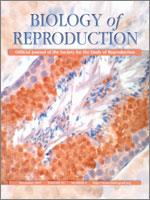A hypothesis to explain the maternal age-dependent increase in formation of aneuploid eggs is deterioration of chromosome cohesion. Although several lines of evidence are consistent with this hypothesis, whether cohesion is actually reduced in naturally aged oocytes has not been directly tested by any experimental perturbation. To directly target cohesion, we increased the activity of separase, the protease that cleaves the meiotic cohesin REC8, in oocytes. We show that cohesion is more susceptible to premature separase activation in old oocytes than in young oocytes, demonstrating that cohesion is significantly reduced. Furthermore, cohesion is protected by two independent mechanisms that inhibit separase, securin and an inhibitory phosphorylation of separase by CDK1; both mechanisms must be disrupted to prematurely activate separase. With the continual loss of cohesins from chromosomes that occurs throughout the natural reproductive lifespan, tight regulation of separase in oocytes may be particularly important to maintain cohesion and prevent aneuploidy.
How to translate text using browser tools
24 August 2011
Age-Dependent Susceptibility of Chromosome Cohesion to Premature Separase Activation in Mouse Oocytes
Teresa Chiang,
Richard M. Schultz,
Michael A. Lampson
ACCESS THE FULL ARTICLE

Biology of Reproduction
Vol. 85 • No. 6
December 2011
Vol. 85 • No. 6
December 2011
aging
aneuploidy
meiosis
oocyte
separase




